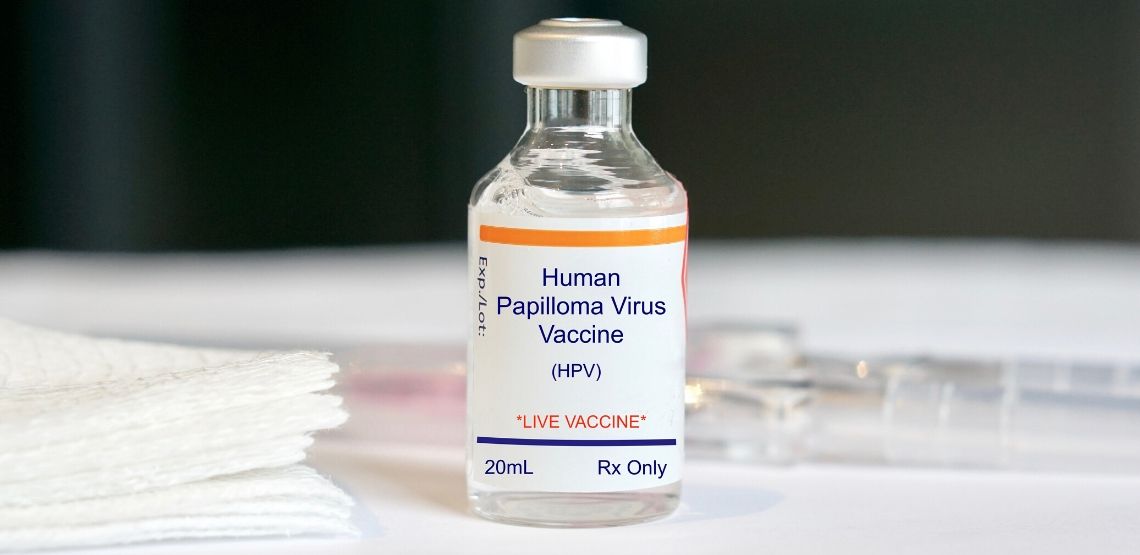What Does the HPV Vaccine Do?
Did you know that Human Papilloma Virus (HPV) is the most common sexually transmitted infection in the world and that about 75% of Canadians will get HPV during their lifetime? Those are numbers that garner attention. Since the HPV vaccine became available, over 100 million doses have been distributed around the globe, but what does this vaccine do?
A Few HPV Facts
- HPV is a group of more than 200 related viruses, more than 40 of which are spread through direct sexual contact.
- A lot of infections caused by HPV clear up by themselves, but the ones that do not can cause at least six types of cancer.
- HPV has been credited with about 70% of vaginal and vulvar cancers in women and is responsible for about 75% of HPV related cancers that occur in males.
- Vaccinating boys against the types of HPV associated with cervical cancer may help protect girls by decreasing transmission since boys may be carriers of these types of HPV.
What is the HPV Vaccine?
The HPV vaccine works by stimulating the body to produce antibodies to HPV, essentially teaching the body to attack HPV cells. After the vaccine, if these antibodies are exposed to HPV, they bind themselves to the virus to prevent HPV from infecting your healthy cells. These vaccinations are perfectly safe and effective in helping prevent HPV cancers in both males and females.
Get Vaccinated for These HPV Types
- Types 16 and 18 are two high-risk HPVs that are the cause of most cervical cancers and other HPV caused cancers.
- Types 6 and 11 cause about 90% of genital warts.
- Types 31, 33, 45, 52 and 58 account for 10% to 20% of cervical cancers combined.
Different Types of Vaccines
In Canada, we have three types of HPV vaccines available:
1.Cervarix
This vaccine protects females against HPV types 16 and 18.
2.Gardasil
This vaccine protects both males and females against HPV types 6, 11, 16 and 18.
3.Gardasil 9
This vaccine protects males and females against nine HPV types, which are 6, 11, 16, 18, 31, 33, 45, 52 and 58.
Why is the HPV Vaccine Important?
The HPV vaccine helps reduce the risk of HPV related cancers in men and women, including cervical, vaginal, vulvar, penile, anal and throat cancers. In addition, the vaccine also helps reduce the risk of precancerous conditions linked to these cancers. Infections and cervical precancers (abnormal cells on the cervix that can lead to cancer) have dropped significantly since the vaccine has been in use. You can also be vaccinated against some HPV types that cause most genital warts.
What Does the HPV Vaccine Protect Against?
To reduce your risk of contracting a future HPV infection, it is a good idea to get vaccinated as soon as possible. Once someone is already infected, the vaccine might not be as effective or may not work at all for an HPV infection that has already been contracted. Even if you have already contracted one strain of HPV, a vaccine may protect you from other strains that you do not have. HPV vaccines do not replace cervical cancer screening— women will still need to see their physician for a pap test.
Related Search Topics (Ads)
When to Get the HPV Vaccine
- Females should be vaccinated between nine and 45 years old to help prevent cervical cancer and precancerous cervical changes.
- Males should be vaccinated between the ages of nine and 26 to prevent anal cancer, anal precancer and anogenital warts.
- The HPV vaccine is not recommended for pregnant women or those who are moderately to severely ill. Pregnant women will need to wait to get vaccinated after they have the baby. Ill folks will need to wait until their health improves, otherwise they will be unable to get the vaccine.
How to Get the HPV Vaccine
Consult with your doctor and let them know you would like to get vaccinated. Your physician may offer the vaccine in their office, or you will need to go to a pharmacy or sexual health clinic. Schools have started offering the vaccine a few times a year as well; they bring a healthcare provider on site to administer the vaccine to minors that have guardian consent.
Vaccines are given two or three times over a six to 12 month period. There are two inoculations if the vaccines series begin before a boy or girl turns 15. After age 15, three doses are recommended to ensure individuals are fully protected. The possible side effects from the vaccine are similar to those of other vaccines: swelling, redness and soreness at the injection site, fever, headache and fainting.
Effectiveness of the HPV Vaccine
The HPV vaccine is highly effective if the vaccine is given before a person’s initial exposure to the virus. It is most effective if given before a person becomes sexually active as their risk of infection will be lower—which is why it is recommended to get vaccinated young. The vaccine is effective in young teens since their immune systems are the most responsive to the vaccine. All three vaccines available in Canada offer nearly 100% protection against the strains they are designed to ward off. The timing of doses is important to ensure vaccine effectiveness, so make sure that you mark your calendar and keep your second (or third) appointment.
The HPV vaccine has already impacted HPV infection rates. In the last 10 years since the vaccines have become more mainstream, HPV related infections have decreased dramatically. Reach out to your doctor for more information and to see if an HPV vaccination is right for you.


